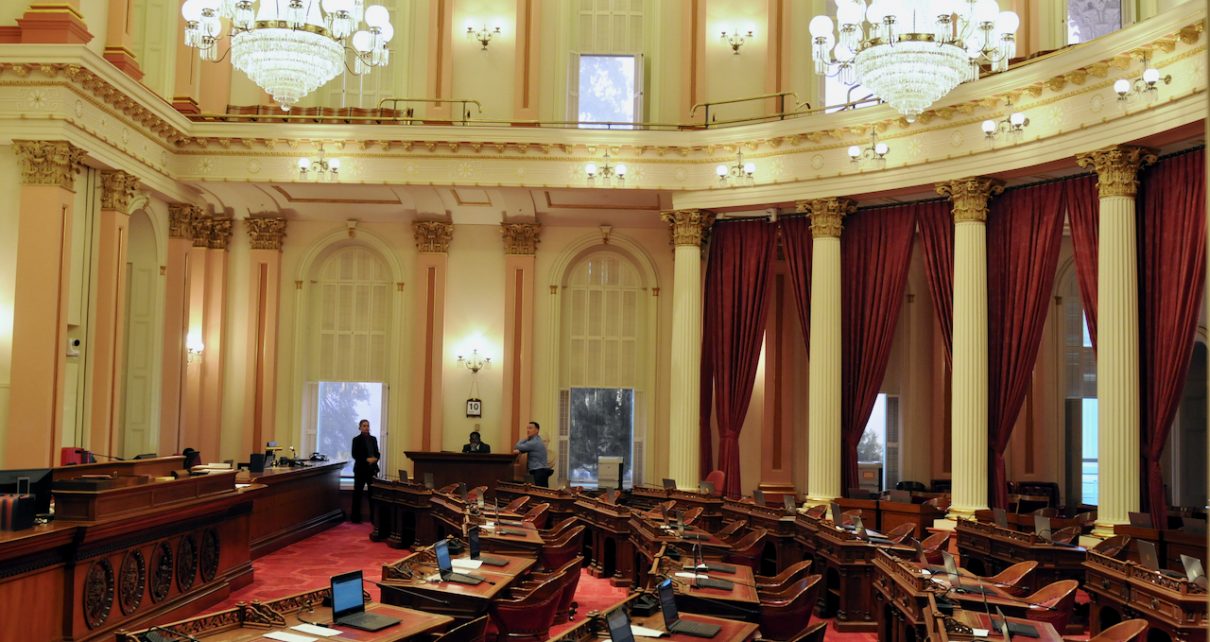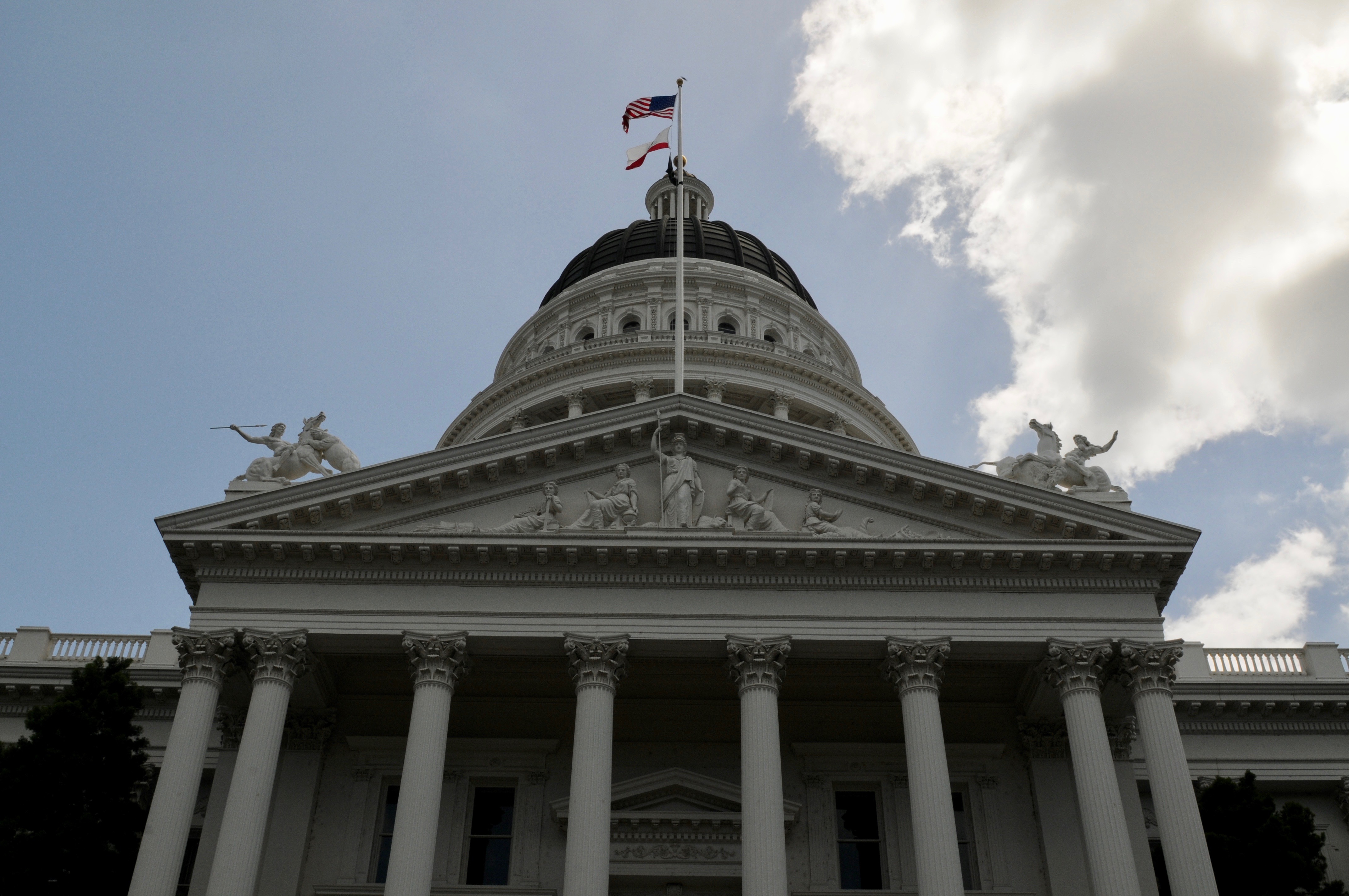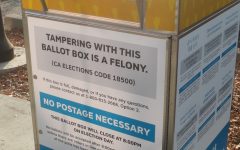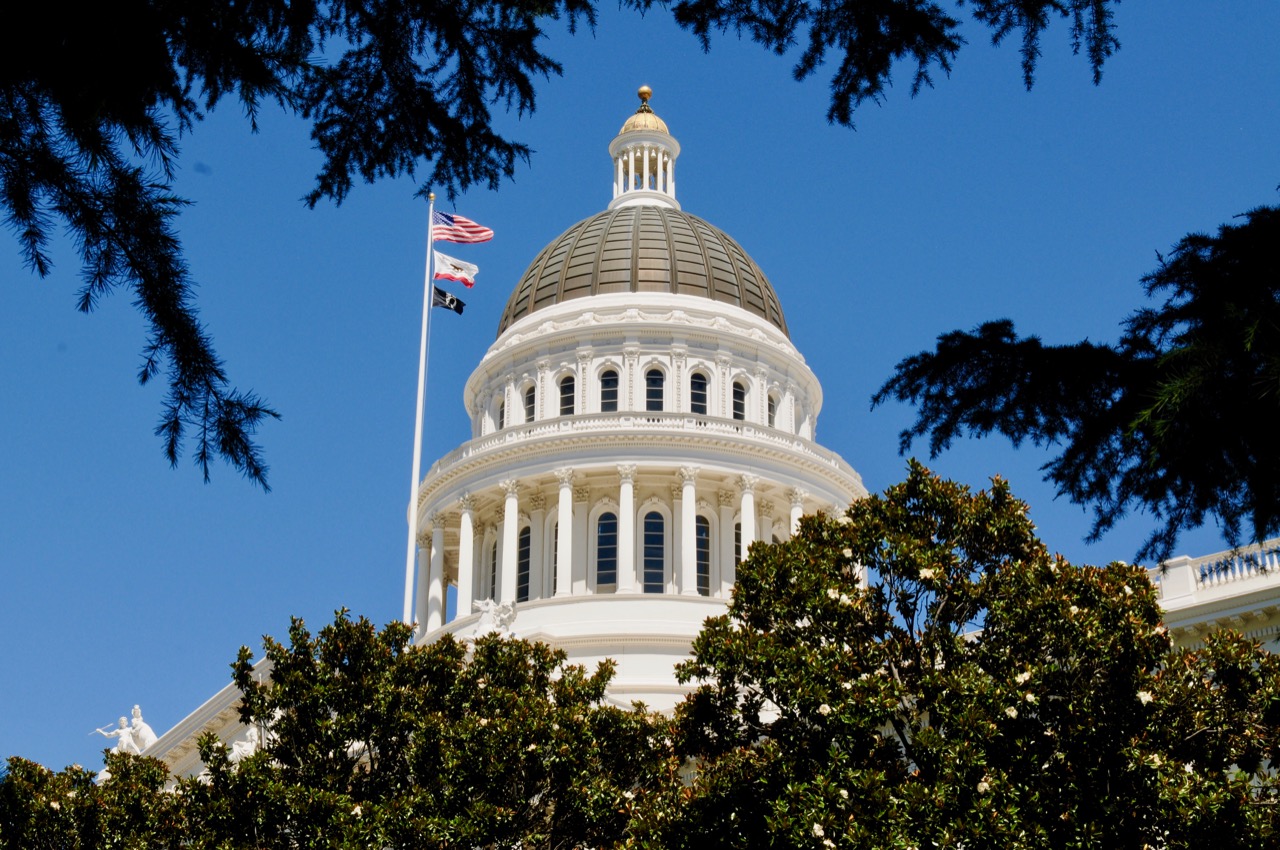
California Senate Chambers. (Photo: Kevin Sanders for California Globe)
Penal Provisions of the Elections Code: Election Campaigns
Every person who violates the law relating to mass mailing is subject to the penal provisions of the Political Reform Act
By Chris Micheli, February 9, 2022 3:15 pm
There are penal, or criminal, provisions of California’s Elections Code. These laws are provided in Division 18. Chapter 4 deals with Election Campaigns. Article 1 deals with Campaign Literature. Section 18301 provides that, in addition to any other penalty, a person who prints or otherwise duplicates, or causes to be printed or duplicated, a simulated ballot or simulated county voter information guide that does not contain the statement required, or that uses an official seal or insignia in violation of the law, is guilty of a misdemeanor.
Section 18302 states that a person is guilty of a misdemeanor who knowingly causes to be mailed or distributed, or knowingly mails or distributes, literature to a voter that includes a designation of the voter’s precinct polling place other than a precinct polling place listed for that voter in an official precinct polling list.
In addition, a person is guilty of a misdemeanor who, with actual knowledge and intent to deceive, causes to be distributed or distributes, including distribution by mail, radio or television broadcast, telephone call, text message, email, or any other electronic means, including over the Internet, literature or any other form of communication to a voter.
Section 18303 provides that every person who violates the law relating to mass mailing is subject to the penal provisions of the Political Reform Act.
Section 18304 specifies that any person who uses or allows to be used any reproduction or facsimile of the seal of the county or the seal of a local government agency in any campaign literature or mass mailing, with intent to deceive the voters, is guilty of a misdemeanor.
Article 2 deals with Political Party Caucuses. Section 18310 prohibits a person from directly or through any other person pay or receive any money or other valuable consideration before, during, or after an election in order to reward any person or as a reward for voting for or against or agreeing to vote for or against the election or endorsement of any other person as the nominee or candidate of any caucus, convention, organized assemblage of delegates, or other body representing or claiming to represent a political party, candidate, or principle, or any club, society, or association. A violation of this section is punishable by imprisonment for 16 months or two or three years.
Section 18311 provides that every person is punishable by imprisonment for 16 months or two or three years who gives or offers a bribe to any officer or member of any political convention, committee, or political gathering of any kind, held for the purpose of nominating candidates for offices of honor, trust, or profit in this state, with intent to influence the person to whom the bribe is given or offered to be more favorable to one candidate than another.
Article 3 deals with Deceptive Online Activities. Section 18320 provides that this act is known as the “California Political Cyberfraud Abatement Act.” It makes it unlawful for a person, with intent to mislead, deceive, or defraud, to commit an act of political cyberfraud. “Political cyberfraud” is defined, as well as the terms “domain name” and “political website.”
Section 18321 specifies that this article does not apply to a domain name registrar, registry, or registration authority. Section 18322 authorizes a court to order the transfer of a domain name as part of the relief awarded for a violation of this article. Section 18323 provides that jurisdiction for actions brought must be in accordance with the Code of Civil Procedure.
Article 4 deals with Political Meetings. Section 18340 provides that every person who, by threats, intimidations, or unlawful violence, willfully hinders or prevents electors from assembling in public meetings for the consideration of public questions is guilty of a misdemeanor.
Article 5 deals with Misrepresentation by Candidates. Section 18350 provides that a person is guilty of a misdemeanor who, with intent to mislead the voters in connection with his or her campaign for nomination or election to a public office, or in connection with the campaign of another person for nomination or election to a public office, does either of the following acts:
- Assumes, pretends, or implies, by his or her statements, conduct, or campaign materials, that he or she is the incumbent of a public office when that is not the case.
- Assumes, pretends, or implies, by his or her statements, conduct, or campaign materials, that he or she is or has been acting in the capacity of a public officer when that is not the case.
A violation of this section may be enjoined in a civil action brought by a candidate for the public office involved.
Section 18351 provides that any candidate in an election or incumbent in a recall election who knowingly makes a false statement of a material fact in a candidate’s statement, with the intent to mislead the voters in connection with his or her campaign for nomination or election to a nonpartisan office is punishable by a fine not to exceed $1,000.
Article 6 deals with the Solicitation of Funds. Section 18360 provides that any person who violates the law is guilty of a misdemeanor. Section 18361 specifies that, upon the complaint of the affected candidate or committee, any person who this law is guilty of a misdemeanor.
Article 7 deals with Electioneering. Section 18370 prohibits a person, on election day, or at any time that a voter may be casting a ballot, within the 100 foot limit specified from doing any of the following:
- Circulate an initiative, referendum, recall, or nomination petition or any other petition.
- Solicit a vote or speak to a voter on the subject of marking the voter’s ballot.
- Place a sign relating to voters’ qualifications or speak to a voter on the subject of the voter’s qualifications.
- Do any electioneering.
A person cannot, on election day, or at any time that a voter may be casting a ballot, do any of the following within the immediate vicinity of a voter in line to cast a ballot or drop off a ballot:
- Solicit a vote.
- Speak to a voter about marking the voter’s ballot.
- Disseminate visible or audible electioneering information.
Any person who violates any of the provisions of this section is guilty of a misdemeanor.
Section 18371 prohibits any candidate or representative of a candidate, and any proponent, opponent, or representative of a proponent or opponent, of an initiative, referendum, or recall measure, or of a charter amendment, from soliciting the vote by mail voter, or do any electioneering, while in the residence or in the immediate presence of the voter, and during the time he or she knows the vote by mail voter is voting. Any person who knowingly violates this section is guilty of a misdemeanor.
Section 18372 provides that notice regarding the prohibitions on electioneering set forth in this article must be provided to the public.
Article 8 deals with Vandalism at Polling Places. Section 18380 prohibits a person, during any election, from doing any of the following:
- Remove or destroy any of the supplies or other conveniences placed in the voting booths or compartments for the purpose of enabling the voter to prepare his or her ballot.
- Remove, tear down, or deface the cards printed for the instruction of voters.
- Remove, tear, mark, destroy, or otherwise deface any voter list or roster with the intent to falsify or prevent others from readily ascertaining the name, address, or political preference of any voter, or the fact that a voter has or has not voted.
- Remove, tear down, or deface the signs identifying the location of a polling place or identifying areas within 100 feet of a polling place.
Any person who violates any of the provisions of this section is guilty of a misdemeanor.
Article 9 deals with the Misuse of State Publications. Section 18390 prohibits an agency or department of the state from using its publications to advise state employees of a constitutional officer’s choice of candidates for public office or for recommending positions on specific ballot propositions not related to the functions of that agency or department. A state officer who violates this section is guilty of a misdemeanor.
Chapter 5 deals with Ballots. Section 18400 provides that a person who makes, uses, keeps, or furnishes to others, paper or cards watermarked or overprinted in imitation of ballot paper or ballot cards is punishable by a fine not exceeding $1,000, or by imprisonment for 16 months, two or three years, or by both that fine and imprisonment.
Section 18401 provides that every person who prints any ballot not in conformity with the law, or who circulates or gives to another any ballot, knowing at the time that the ballot does not conform to specified requirements, is guilty of a misdemeanor.
Section 18402 states that any individual, group, or organization that knowingly distributes any application for a vote by mail ballot that does not conform to specified requirements is guilty of a misdemeanor.
Section 18403 specifies that any person other than an elections official or a member of the precinct board who receives a voted ballot from a voter or who examines or solicits the voter to show his or her voted ballot is punishable by a fine not exceeding $10,000, by imprisonment for 16 months or two or three years, or in a county jail not exceeding one year, or by both that fine and imprisonment.
- Frequently Asked Questions about Privileges of Voters in California - April 23, 2024
- Does a Bill Need Statutory Construction Guidance? - April 22, 2024
- Frequently Asked Questions about Lobbying Support Services - April 22, 2024





Here’s the smoking gun about the security exploits found in Dominion Voting Systems that were explained away and approved by corrupt former CA Secretary of State, Alex Padilla :
https://votingsystems.cdn.sos.ca.gov/vendors/dominion/dvs510staff-report.pdf